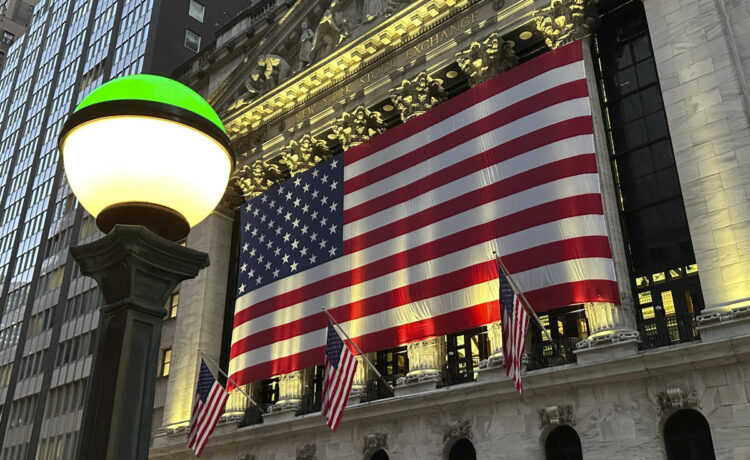NEW YORK (AP) — Wall Street edged back from its all-time high on Friday, as U.S. stock indexes drifted following mixed profit reports from big companies.
The S&P 500 barely budged and slipped by less than 0.1%, a day after rallying within 0.1% of its record set last month. The Dow Jones Industrial Average dipped 165 points, or 0.4%, while the Nasdaq composite rose 0.4%.
The S&P 500 still closed out its first winning week in the last three thanks in part to reports showing companies made even fatter profits at the end of 2024 than analysts expected. They’ve helped the market power through a range of worries centered on higher interest rates and stubborn inflation.
Airbnb climbed 14.4% after reporting stronger profit for the latest quarter than analysts expected as customers booked more nights on its platform. Wynn Resorts jumped 10.4% after likewise topping earnings expectations, thanks in part to strength for its Las Vegas operations.
On the losing side of Wall Street was Applied Materials, which dropped 8.2%. The company, whose products help make semiconductor chips, displays and other tech, also reported stronger profit for the latest quarter than analysts expected. But it gave a forecasted range for upcoming revenue whose midpoint fell short of Wall Street’s expectations.
All told, the S&P 500 slipped 0.44 to 6,114.63. The Dow Jones Industrial Average dipped 165.35 points to 44,546.08, and the Nasdaq composite rose 81.13 to 20,026.77.
In the bond market, Treasury yields fell after a report said sales at U.S. retailers weakened by much more last month than economists expected. Bad weather, including bitingly cold temperatures in the South and devastating wildfires in California, may have helped keep shoppers away from stores and auto dealerships.
The hope among investors has been for economic data to remain at a Goldilocks level, where it’s not so weak that it raises worries about a downturn but not so strong that it creates upward pressure on inflation.
This past week featured a couple disappointing reports that showed inflation unexpectedly accelerated last month. Besides squeezing tighter on U.S. households’ budgets, such stubbornly high inflation is likely to keep the Federal Reserve on hold for a while when it comes to providing relief through lower interest rates.
Inflation may feel more upward pressure from tariffs that President Donald Trump has announced recently. So far, though, the U.S. stock market has taken such threats in stride. The belief is that Trump is using tariffs as a tool for negotiation, and he may ultimately avoid triggering a punishing global trade war in order to prevent damage to the U.S. stock market and economy.












